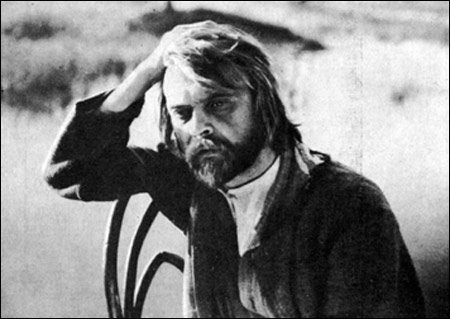HFA acquires Ukrainian film collection:
Works include features, documentaries, propaganda

The new film conservation center will not only help the Harvard Film Archive care for films already in its possession; it will also encourage those with valuable film collections to entrust them to the archive’s stewardship.
Such an acquisition occurred this past summer when the archive was given a private collection of Ukrainian films that should help make Harvard a premier center not only for scholars of Ukrainian cinema, but also for a much wider group of experts interested in Soviet history and culture.
The films were donated by Montreal resident Walter Hayduk, who originally offered them to the National Archives of Canada. The archives could not accept the gift because it lacked the requisite Canadian content, but suggested that the collection be given to the Harvard Ukrainian Research Institute (HURI). The films arrived in Cambridge in late 2001. However, HURI did not have the storage facilities that would guarantee the long-term preservation of the collection. Knowing of the Harvard Film Archive’s interest in Soviet and East European cinema, HURI approached the archive, and negotiated a donation agreement between it and the institute.
“The archive has a very long tradition of presenting and supporting the work of East European cinema,” said HFA curator Bruce Jenkins. “Our founding curator, Vlada Petric, did extensive work on Soviet and East European cinemas. For him it was a real priority to integrate those cinemas not only into his teaching, but also into the collection.”
The collection includes 11 full-length feature films, plus 33 documentaries, propaganda newsreels, and shorts. The 11 feature films were made between the mid-1930s and the early 1980s. The oldest, “Natalka-Poltavka,” is, by some accounts, the first film adaptation of an opera produced in the Soviet Union. Others include Sergei Paradzhanov’s “Shadows of Forgotten Ancestors” (1964) and Ivan Mykolaichuk’s “Babylon XX” (1979).




